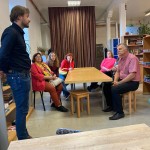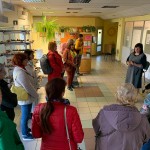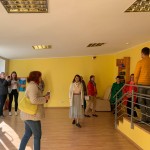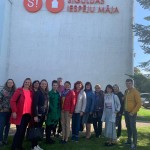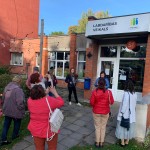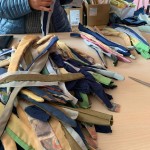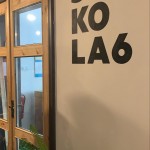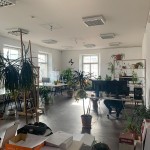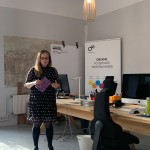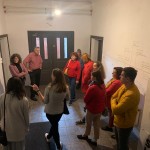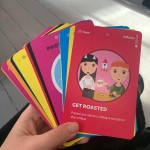Representatives of the Rēzekne municipality go on an exchange of experience with social enterprises
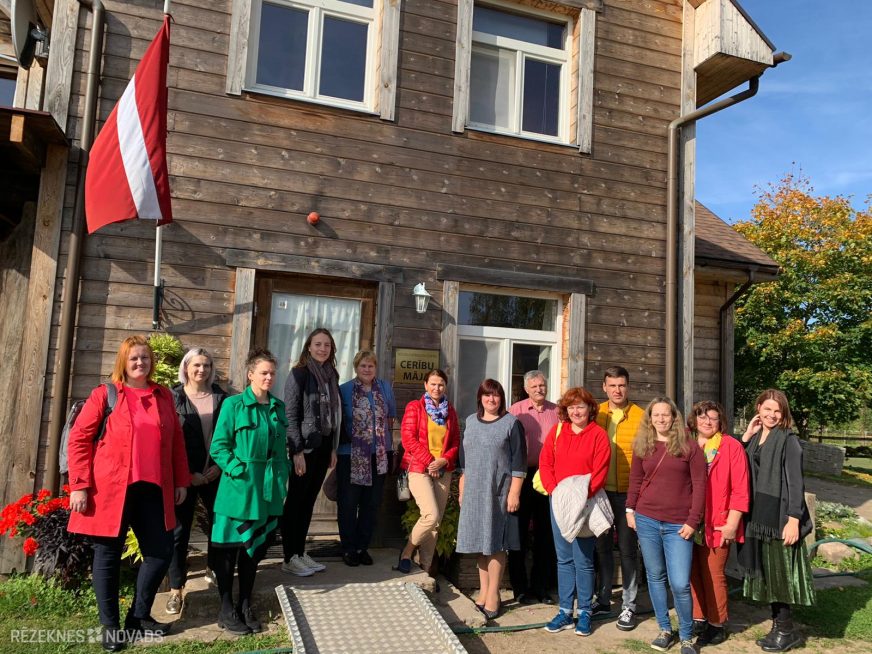
The success of the project “Building Resilience and Cooperation: Social Entrepreneurship for Stronger Communities in Latvia” was followed by an exchange of experience with various social entrepreneurs in Sigulda and Cēsis. Not only did the employees of the municipality of Rezekne, but also other stakeholders, including existing and potential social entrepreneurs, participated in the trip.
At the beginning of the visit, Sigulda, the participants welcomed Eva Vilkin, who is not only a member of the “hopes of hope”, but also a member of the board of the social enterprise “all”.
The activities of the association focus on the integration of all ages, sex people with disabilities and their family members in society, the protection of rights and interests, the development of civil society, the organisation of leisure time, the promotion of employment, education, the provision of social services.
First, Eva presented the participants of the trip with the activities of the association and the company, explaining in detail how much success had been achieved over the past seven years, as well as responding to questions. It was later possible to see creative workshops with high-quality products in the hands of young people – candles, flowers, hangings, needles, woven fabrics and a lot of other quality goods. These goods are then transported to “all” kiosk at Sigulda station, as well as to the charitable store “all”. There is a chance for people to buy the business, thereby echoing the activities of the association.
The visit to Sigulda ended with a visit to the “hope house”, which is one of the social services provided by the association “hope wings”. Here 13 young people live full-time – in their own preparation for eating, taking care of themselves and one another.
The experience of the exchange of experience continued in Cēsis, where in a 230-year-old historic building, the centre of creative industries “School 6” was located in the city centre. The participants were met by Dita Trapenciere, head of THE SCOTTISH design lab together with Ati Eglina-tree, head of Cēsis municipality administration.
Dita told the participants about the various opportunities for the business to be provided by this grocery house. This is where the development of products and services at different stages is supported. SKOLA6 offers room rental for small offshore locations at a lower price than average market prices, meeting places, places for workshops, and various other benefits in a creative environment.
In one of the premises, the participants met Ellen Bushman, the designer of the “Design Elevator” social enterprise, who shared the experience of the work atmosphere IN SCHOOL 6, cooperation between co-production entrepreneurs, own experience and projects in the social enterprise. Elīna also engaged in discussions with participants on different types of social enterprises, their contribution to society and the various instruments that municipalities can use to provide support to new businesses with a social objective.
The experience exchange visit ended in Cēsis's new school, where Director Ivo Rode told her about how to manage private school and what opportunities for young people to learn in private school. It was a pleasant amazement of the school's light atmosphere, both design and energy, which could be felt around. It really seemed a different school, as usual to see everyday.
With impressions on this trip and the project as a whole, the Regita Zealand, the project manager in the Latvian Social Entrepreneurship Association, is divided: “Social entrepreneurship is best known in action, seeing people doing their heart and effectively helping to address the various social problems. It is a particular benefit for municipalities where social entrepreneurs choose to carry out their activities, so it is important that, at the very beginning, the local government is supportive and ambitious, open to cooperation and with a desire to create even greater social impact. The stories of experience in Sigulda and Cēsis show how social entrepreneurship can be a useful tool in addressing social problems, both in education and by improving social services. We are currently working actively with the Rēzekne municipality, the Lephen and Ogre District, to bring together social entrepreneurship in these districts.
Good reviews have been heard on the trip, because indeed, seeing experience that has been developing for several years is a desire and motivation to improve its environment as well.
Education-Business Contact Point Commercial Specialist May Hartmane
